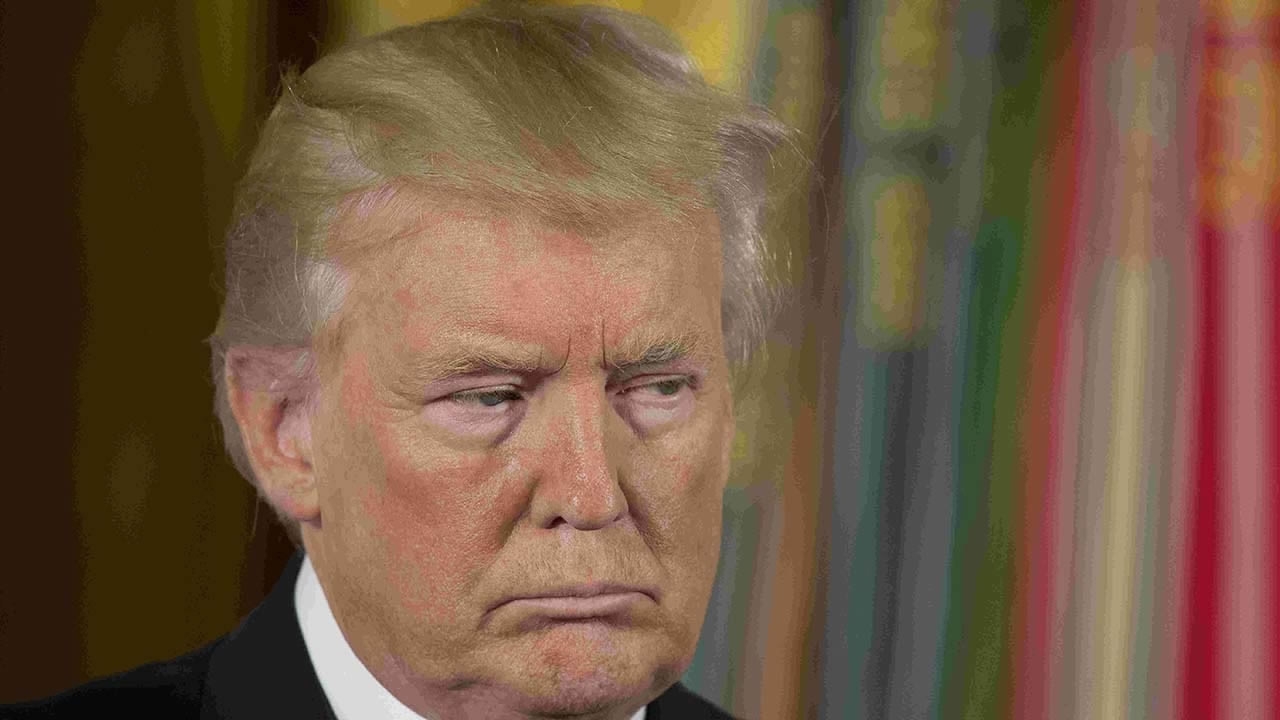
Opinions
11:22, 11-Aug-2017
Opinion: Trump's Russia plans are falling apart
By Sajjad Malik from China.org.cn

Donald Trump has approved a new Congress-developed set of sanctions against Russia. The legislation makes it more difficult for American companies to do business in Russia, especially in limiting the money they can invest in energy-related sectors.
The measure has dealt a serious blow to efforts for a better relationship between the two countries. Trump also acknowledged that ties with Moscow were at an "all-time dangerous low." He directly held Congress responsible for this.
He also loudly protested about the "flawed" policy to sanction Moscow, but hardly anyone was listening. Similarly, Trump's assertions that he was better qualified and poised to steer the foreign relations might not find many takers.

The reaction from Moscow was swift. It angrily termed the move as a new trade war. (Russian President Vladimir) Putin had already announced the expulsion of 755 individuals working for the US diplomatic mission in Russia. Matching counter-economic measures are also possible.
Another important and equally aggressive part of the official Russian reaction was a statement by Prime Minister Dmitry Medvedev, who said the sanctions shattered all hopes for better ties with Washington. It means that traditional brinkmanship is back and the result will be a zero-sum game.
Trump came to power with the hope and promise that he would improve ties with Russia, and heaped praise on Putin. Trump's statements about ties with Russia had raised serious questions about his attitude and policy options. Opponents had criticized his seeming soft views on Moscow.
The real test for his policy was selling it to the power establishment. By now it is crystal clear that Trump should have saved his ideas about Putin for another time. He has been unsuccessful in convincing Americans about the merits of his policy prescriptions.
He should have known from the start that the establishment was uneasy about his leaning towards Russia. It was also evident from a stream of news reports and articles appearing in media about Russian meddling in the US elections and alleged links between Team Trump and Russians officials.
In fact, most of Trump's time in office so far has been consumed by defending himself in the evolving Russiagate scandal. Trump is partially responsible, for he first denied any contacts or interference by Russia, but later fired his National Security Adviser on this very issue.

Russian President Vladimir Putin (L) speaks with US President Donald Trump during their bilateral meeting at the G20 Summit in Hamburg, Germany on July 7, 2017. /Reuters Photo
Russian President Vladimir Putin (L) speaks with US President Donald Trump during their bilateral meeting at the G20 Summit in Hamburg, Germany on July 7, 2017. /Reuters Photo
The situation did not improve and his every move to ease ties with Moscow was presented in a negative way. Even the first face-to-face interaction between Trump and Putin in Germany later became mired in controversy when reports appeared that the two leaders had a private conversation over dinner.
Trump might have felt personally humiliated when he was forced to sign the law on sanctions against Russia. It was against his vision and policy for better relations, which he has been openly advocating. The sanctions are also a final blow to his desire to forge an independent foreign policy.
His plans to have a special relationship with Vladimir Putin have been thrown into the rubbish bin by a determined "establishment," and, from now onward, he will have to find a new way to normalize relations with Russia.
The US also faces consequences for hitting Russia with fresh sanctions. We are aware that Putin is a strong-minded person who cannot be forced into changing his views and his foreign policy, as evidenced by his actions in Ukraine and Syria.

The friction between the two nations further complicates the chances of cooperation. Syria is an especially sensitive case, as United States and Russia follow mutually-opposing polices and also support different groups in the conflict.
According to various experts, one of the reasons for the prolonged civil war is the strategic calculations by the leading powers. Russia and America can save countless lives and end the misery of the Syrian people by agreeing on a peaceful solution, but this looks unlikely.
Apart from Syria, the policymakers in United States should know that they might need Russia to manage the North Korean threat. Hence, channels should be kept open for cooperation despite the acrimony due to sanctions.
(This piece was originally published on China.org.cn. The author is a columnist with China.org.cn. The article reflects the author’s opinion, and not necessarily the view of CGTN.)
Source(s): China.org.cn

SITEMAP
Copyright © 2018 CGTN. Beijing ICP prepared NO.16065310-3
Copyright © 2018 CGTN. Beijing ICP prepared NO.16065310-3